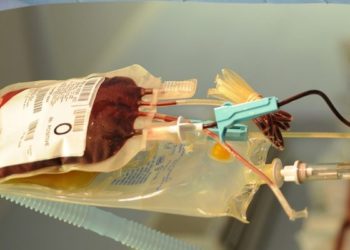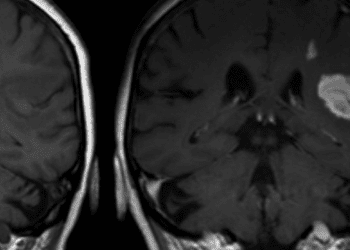Indefinite anticoagulation for unprovoked venous thromboembolism is not cost-effective
1. In this Markov modeling study, indefinite anticoagulation for first unprovoked venous thromboembolism (VTE) cost $16,014 more per person than discontinuation based on clinical guidelines.
2. Indefinite anticoagulation for first unprovoked VTE did not increase the number of quality-adjusted life-years (QALYs) per patient.
Evidence Rating Level: 1 (Excellent)
Study Rundown: VTE is estimated to have a total annual healthcare cost between $1.5 billion and $3.3 billion in Europe, $7 billion to $10 billion in the United States, and $600 million in Canada. Anticoagulant therapy with direct oral anticoagulants (DOACs) for three to six months is the minimum required duration of treatment of patients with VTE. Thereafter, a lifelong decision must be made to either discontinue anticoagulation or continue it indefinitely, as progressively longer durations of treatment do not reduce the long-term risk for recurrent VTE once anticoagulation is discontinued. However, there is a gap in knowledge as to understanding the tradeoffs between benefits, harms, and costs of indefinite anticoagulation versus stopping anticoagulation after a set period of time. Overall, this study demonstrated that continuing versus discontinuing anticoagulation indefinitely in all patients with a first unprovoked VTE had little chance of improving life expectancy but might provide a mortality benefit in certain subgroups. This includes patients with an initial pulmonary embolism or those at very low risk for major bleeding. Although, indefinite anticoagulation is unlikely to be cost-effective. This study was limited by using data based on literature as well as limited data beyond one year of extended anticoagulation. Nevertheless, these study’s findings are significant, as they demonstrate that indefinite anticoagulation for first unprovoked VTE is unlikely to be cost-effective and does not increase the number of QALYs.
Click to read the study in AIM
Relevant Reading: Anticoagulant Therapy for Cancer-Associated Thrombosis
In-Depth [Markov modeling study]: This Markov case-based modeling study included patients who best fit current clinical practice in the long-term management of VTE. Eligible patients were enrolled in treatment strategies that started at the age of 55 years. Second, patients received therapeutic doses of DOACs for indefinite anticoagulation. Third, patients in the indefinite anticoagulation treatment strategy who experienced a recurrent VTE switched to low-molecular-weight heparin (dalteparin 200 units/kg) for four weeks whereas those who experienced a major bleeding event had their anticoagulation temporarily interrupted for two weeks and then restarted treatment. Patients who did not fit these treatment criteria were excluded from the analysis. The primary outcome measured was costs (in 2022 Canadian dollars) and QALYs, discounted at an annual rate of 1.5% as per guidelines for economic evaluation of health technologies from the Canadian Agency for Drugs and Technologies in Health. Outcomes in the primary analysis were assessed via sensitivity analysis with a probabilistic sensitivity analysis using a Monte Carlo simulation of 500 iterations. Based on the primary analysis, when compared with discontinuing anticoagulation after initial treatment in a hypothetical cohort of 1,000 patients aged 55 years, indefinite anticoagulation prevented 368 recurrent VTE events but induced an additional 114 major bleeding events, which included 30 intracranial hemorrhages and 11 deaths from bleeding. Indefinite anticoagulation cost $16,014 more per person and did not increase QALYs (-0.075 per person). In summary, this study demonstrates that indefinite anticoagulant therapy for first unprovoked venous thromboembolism is unlikely to be cost-effective. Although, it may provide a mortality benefit in certain subgroups such as patients with an initial pulmonary embolism or those at low risk for major bleeding.
Image: PD
©2023 2 Minute Medicine, Inc. All rights reserved. No works may be reproduced without expressed written consent from 2 Minute Medicine, Inc. Inquire about licensing here. No article should be construed as medical advice and is not intended as such by the authors or by 2 Minute Medicine, Inc.







